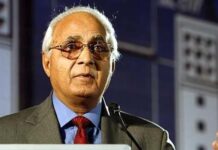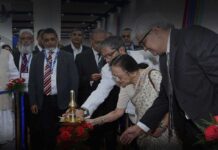In a press statement issued by the Bar Council of India, they have revealed their proposal to include a ‘mandatory experience’ clause, by amending the Advocates Act. The mandatory experience clause implies that any new lawyer should have a minimum experience of two years of practice in a district or taluka court, before entering into practising the high court of any other state or Supreme Court. Besides, any lawyer willing to exercise in the Supreme Court should have had two years of experience at the high court level. Therefore, the proposal sets in place a hierarchy of courts and establishes a system when a lawyer can only approach the higher court, after having considerable experience at the lower courts. As per the press statement, these suggestions have been incorporated on the advice of the new Chief Justice of India, S.A. Bode. As a new public function, CJI Bobde along with Attorney General K.K.Venugopal and other top judges and lawyers in the country.
As per the new rules, a new lawyer willing to begin his practice in the High Court will be required to show a certificate issued by an elder advocate, who has at least 15 years of experience at the Bar, as well as the district judge. The document should assure that the fresh and new lawyer had practised in a district or taluka court for at least two years. The production of the said certificate is a requirement essential in allowing any young lawyer to have a membership of the high court bar association.
Similarly, if any lawyer is willing to practise in the Supreme Court, he/she will have to attain an experience certificate of the high court bar association, which can ensure that they have a mandatory two years’ experience at the high court level. The document has to both from the high court bar association and the Registrar General of the high court. However, what is still unsure is to whether to make it minimum years of practise criteria or a minimum number of ‘appearances’, which will allow a lawyer to get the said certificate.
Though the said rules are just a proposal, at a nascent state, the BCI is considering to implement it. They are likely to come into effect in about four months, starting from March 2020. The said rules will apply to all new entrants into the profession, who qualify to sit for the All India Bar Examination. The said rules will form a part of the Advocates Act and amend the powers of the Bar Council listed in Section 7 and Section 49 of the Advocates Act.
Continuous Legal Education [CLE] for practising lawyers:
The changes being proposed are similar to the ones observed in the field of medicine. Another change which is being thought upon is that the advocates with ten years of practice have to go through ‘continuous legal education’. The proposal of the rule suggests an advocate in five years will have to undertake at least 40 days of training. It was recommended that the instruction to advocates could be imparted by the sitting and former judges of the High Court and the superior experiences advocates, varying in different clinical and non-clinical subjects for the continuation in the legal profession. In the statement it was also mentioned that the CLE would be conducted without charging the new lawyers any fee, to be made effective March 2020 onwards.
Re-introduction of the minimum experience for the judges:
It has hit the news that one 21-year-old, Mayank Pratap Singh from Jaipur has made history by cracking the Rajasthan Judicial Services 2018. He has achieved a milestone in the country by becoming the youngest judge in the country. In an interview, he says
“I was always drawn towards the judicial services going by the importance and respect reserved for the judges in the society. I took admission in 2014 in the five-year LLB course from the Rajasthan University, which ended this year,”
There is a minimum age requirement to be appearing for the judicial services examination in Rajasthan set at 21 years. Earlier, the age bar was 23 years, which was reduced to 21 in 2019. Mayank appreciates the move of lowering the age criteria, as it would help fill vacancies of the posts lying vacant. In this regard, a suggestion had come from Venugopal, who suggested in a public function that the age of retirement for the judges in the courts should be raised till 68 or 70 years. The proposal was supported by the Bar Council saying that it has been one of their long-standing demands as well. However, one major issue that is faced with regard to increasing the age of retirement of the judges is that if the same is done, it will not be possible to offer postings of these judges at different commissions, tribunals or boards. They suggest that these postings should only be given to deserving lawyers.
Another matter which was highlighted, in light of a 21-year-old becoming a judge was to have a minimum number of years of experience for judicial officers in the subordinate judiciary. Earlier, the rule was that a lower level judicial officer required three years of experience at the Bar, in order to be eligible for an officer. However, the same was removed by the Supreme Court by way of its judgement. This has attracted judicial officers, munsifs or magistrates with little or no experience entering the said post, due to which the litigants are facing multiple problems. It is observed that a rigorous two-year training at the judicial academy is not proving to be sufficient, without an experience of the Bar. Therefore, the Bar Council of India plans to seek a review plea before the Supreme Court, urging it to revisit its decision, striking down the minimum experience requirement for judicial officers.
















































